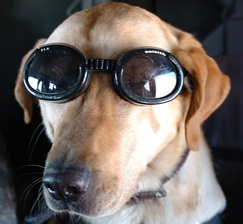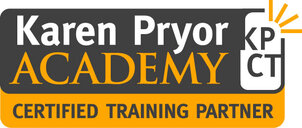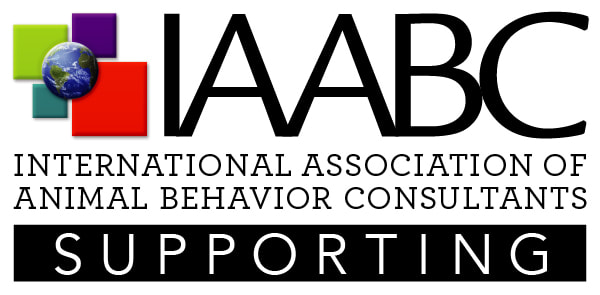
"My dog knows ten different commands, but he is stubborn and refuses to do any of them! He does it to bother me!" As a trainer, I hear this sort of thing all the time. And during our training sessions, my clients often start off by barking commands at their dogs (pun intended!). Recently, one client came into my classroom with a beautiful dog who was somewhat shy. She proceeded to shout commands at the dog while the dog looked back at her blankly. "See! He is willfully ignoring me!" I walked over to the dog and quietly asked for two or three of those same behaviors in a cheerful voice. Poof! Problem solved!
I often compare dogs to children in their need to be in a pleasant environment. The child in second grade with a really mean-spiritied teacher would do much better in a classroom with a pleasant and encouraging teacher. We all do better in an environment that promotes learning and allows us to make mistakes without dire consequences. Our dogs are no different. It's such a simple principle, but many people are reticent to embrace it when it comes to their own dogs. This isn't all that surprising. It goes against the more traditional and hard-to-break habit of seeing our dogs as beasts who must be controlled.
On occasion in my puppy classes, the dulcet tones of military drill sergeants ring through the air. I quietly walk over and suggest a gentler approach. The results are astounding. Like many positive dog trainers, I intentionally use the word "cue" rather than "command" when talking about the words we use to ask our dogs for particular behaviors. The language we use to describe what we do is important. It sets a tone. It fosters an attitude.
At home with my own dog, I use the cue "sit please." And let me tell you, my dog has a rock-solid sit! When I tell clients about this, they chuckle, thinking I'm exaggerating or spoiling my dog in some way. I think of my use of pleasant cues as a way of creating a respectful partnership. I have "buy in" from my dog. She's willing to do almost anything I ask of her, as long as I have trained it well and maintain a happy learning environment.
I recently went to an appointment with a client I hadn't seen in quite a long time. As I walked in the door, I overheard her asking her dog to "sit, please." The dog sat happily without hesitation and the person had an enormous grin on her face. So did I.
I often compare dogs to children in their need to be in a pleasant environment. The child in second grade with a really mean-spiritied teacher would do much better in a classroom with a pleasant and encouraging teacher. We all do better in an environment that promotes learning and allows us to make mistakes without dire consequences. Our dogs are no different. It's such a simple principle, but many people are reticent to embrace it when it comes to their own dogs. This isn't all that surprising. It goes against the more traditional and hard-to-break habit of seeing our dogs as beasts who must be controlled.
On occasion in my puppy classes, the dulcet tones of military drill sergeants ring through the air. I quietly walk over and suggest a gentler approach. The results are astounding. Like many positive dog trainers, I intentionally use the word "cue" rather than "command" when talking about the words we use to ask our dogs for particular behaviors. The language we use to describe what we do is important. It sets a tone. It fosters an attitude.
At home with my own dog, I use the cue "sit please." And let me tell you, my dog has a rock-solid sit! When I tell clients about this, they chuckle, thinking I'm exaggerating or spoiling my dog in some way. I think of my use of pleasant cues as a way of creating a respectful partnership. I have "buy in" from my dog. She's willing to do almost anything I ask of her, as long as I have trained it well and maintain a happy learning environment.
I recently went to an appointment with a client I hadn't seen in quite a long time. As I walked in the door, I overheard her asking her dog to "sit, please." The dog sat happily without hesitation and the person had an enormous grin on her face. So did I.

 RSS Feed
RSS Feed


